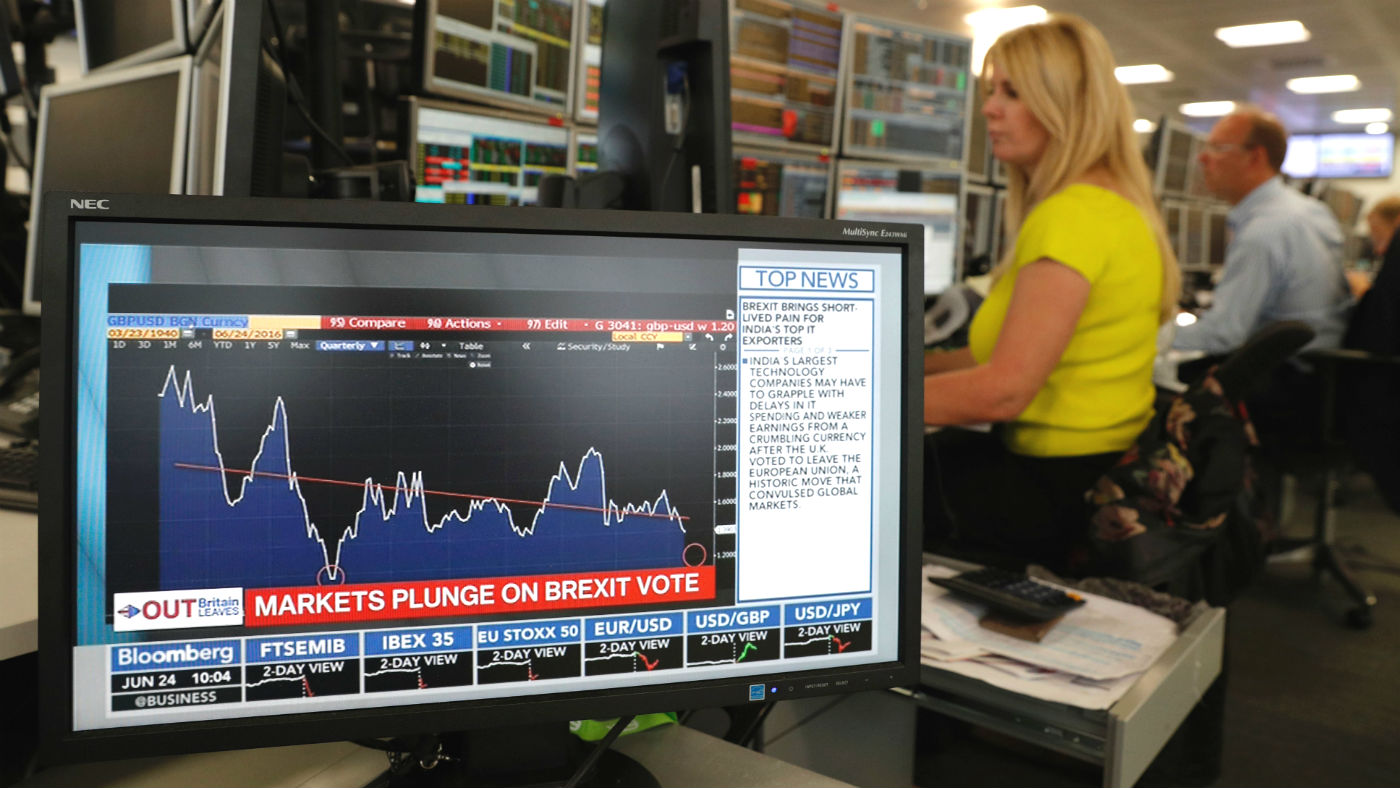Should hedge funds be banned from private polling?
Businesses accused of gaming referendum result to make billions in profits

A free daily email with the biggest news stories of the day – and the best features from TheWeek.com
You are now subscribed
Your newsletter sign-up was successful
The head of the Treasury select committee, Nicky Morgan, has called for hedge funds to be banned from commissioning private polls and then making huge profits on the stock market when the results go public.
It follows a Bloomberg report that found hedge funds had hired leading pollsters to provide private exit polls and other data on voter behaviour in the run-up to the EU referendum.
Electoral law prohibits pollsters from making their findings public while the voting booths are open, but no laws prohibit the data being passed directly to city institutions for trading purposes.
The Week
Escape your echo chamber. Get the facts behind the news, plus analysis from multiple perspectives.

Sign up for The Week's Free Newsletters
From our morning news briefing to a weekly Good News Newsletter, get the best of The Week delivered directly to your inbox.
From our morning news briefing to a weekly Good News Newsletter, get the best of The Week delivered directly to your inbox.
The Times says this means “hedge funds would be in an ideal position to bet on changes to the pound when the private polling data went public”.
Shorting the pound also “let hedge funds avoid the ensuing crash which led to chaos in the global markets”, says the London Evening Standard.
“Pollsters said they believed Brexit yielded one of the most profitable single days in the history of their industry,” Bloomberg said. “Some hedge funds that hired them cleared in the hundreds of millions of dollars, while their industry… was battered by the chaos Brexit wrought in global financial markets.”
Polling companies that sold data included YouGov, Survation, ICM, BMG and ComRes, “with at least a dozen hedge funds buying the exclusive or syndicated polling data” reports Business Insider UK.
A free daily email with the biggest news stories of the day – and the best features from TheWeek.com
According to one source, YouGov made £760,000 selling a private exit poll to one hedge fund, while several investment firms made in excess of £750 million in the hours after the Brexit vote closed.
Even before the vote there were fears many financiers were looking to cash in on early exit polls.
Bloomberg also raised questions about the referendum night pronouncements of prominent Brexiteer Nigel Farage. The news agency claimed the former leader of Ukip leader had twice said publicly on the night that Leave had likely lost despite having information suggesting that it had won.
It also said that he had changed “his story” about who told him what when.
-
 Local elections 2026: where are they and who is expected to win?
Local elections 2026: where are they and who is expected to win?The Explainer Labour is braced for heavy losses and U-turn on postponing some council elections hasn’t helped the party’s prospects
-
 6 of the world’s most accessible destinations
6 of the world’s most accessible destinationsThe Week Recommends Experience all of Berlin, Singapore and Sydney
-
 How the FCC’s ‘equal time’ rule works
How the FCC’s ‘equal time’ rule worksIn the Spotlight The law is at the heart of the Colbert-CBS conflict
-
 Can Nigel Farage and Reform balance the books?
Can Nigel Farage and Reform balance the books?Today's Big Question Nigel Farage has, for the first time, ‘articulated something resembling a fiscal rule’ that he hopes will win over voters and the markets
-
 Can the UK avoid the Trump tariff bombshell?
Can the UK avoid the Trump tariff bombshell?Today's Big Question President says UK is 'way out of line' but it may still escape worst of US trade levies
-
 Five years on, can Labour's reset fix Brexit?
Five years on, can Labour's reset fix Brexit?Today's Big Question Keir Starmer's revised deal could end up a 'messy' compromise that 'fails to satisfy anyone'
-
 Why au pairs might become a thing of the past
Why au pairs might become a thing of the pastUnder The Radar Brexit and wage ruling are threatening the 'mutually beneficial arrangement'
-
 Brexit: where we are four years on
Brexit: where we are four years onThe Explainer Questions around immigration, trade and Northern Ireland remain as 'divisive as ever'
-
 The ousting of Crispin Odey
The ousting of Crispin OdeyTalking Point New sexual assault claims have felled one of London’s most prominent financiers. Why did it take so long?
-
 Is it time for Britons to accept they are poorer?
Is it time for Britons to accept they are poorer?Today's Big Question Remark from Bank of England’s Huw Pill condemned as ‘tin-eared’
-
 Is Brexit to blame for the current financial crisis?
Is Brexit to blame for the current financial crisis?Talking Point Some economists say leaving the EU is behind Britain’s worsening finances but others question the data